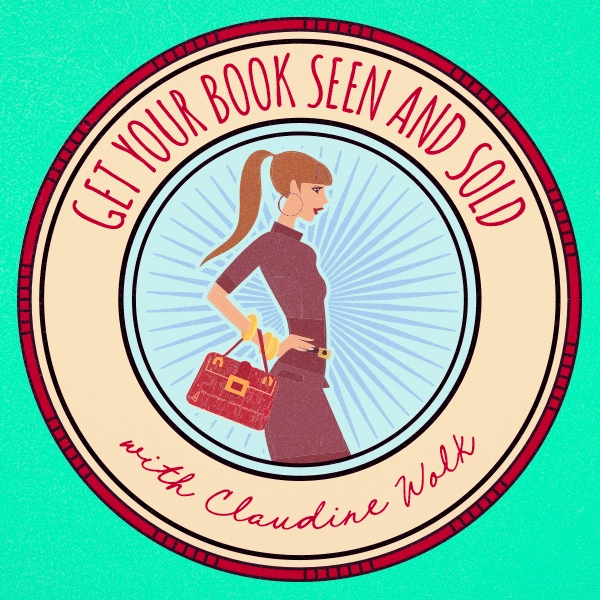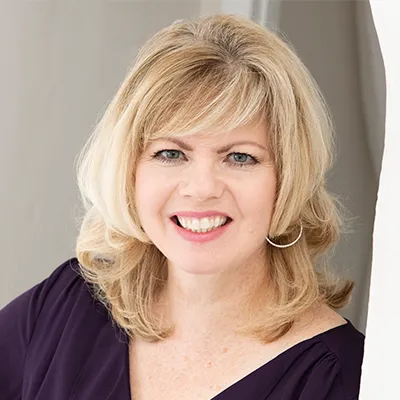Preview Claudine's new book
What Your Audience Already Desires
YOU are the person who will come up with the best ideas for sharing your message.
YOU will know who and where to pitch your story.
YOU are the one who cares the most, so you will be the one who will work the hardest.

Feature
Create Your Successful Book Marketing Strategy Today
Just Answer Three Easy Questions
 The practice of book marketing (and it is a practice) can make the hardiest of writers break out into a cold sweat. Most writers find out far too late that writing the book is the easy part of book publishing. Many writers feel that the skills to write a book are far different from the skills to market a book. I disagree. While book marketing can be challenging, it can also be a fun way to tap into the creativity that every writer uses to write a book.
The practice of book marketing (and it is a practice) can make the hardiest of writers break out into a cold sweat. Most writers find out far too late that writing the book is the easy part of book publishing. Many writers feel that the skills to write a book are far different from the skills to market a book. I disagree. While book marketing can be challenging, it can also be a fun way to tap into the creativity that every writer uses to write a book.
To get started on a book marketing strategy, take a deep breath and answer three simple questions.
The answers will be your book marketing fundamentals -- message, audience, and hook -- the essential elements that you will use in all of your book marketing materials and your book marketing plan. With the answers to these questions, you will be well on your way to creating a successful book marketing plan.
Question One: Who is your audience?
Who, specifically, will buy your book? The answer to this question is not who might pick up your book or who may find it useful but who did you have in mind when you wrote this book?
Grab your favorite pen and a hearty piece of paper and start writing down some potential readers of your book. Are your readers mostly: men, women, non-binary? Are they moms, dads, young adults, professionals?
Get specific. My first book is a non-fiction book titled, It Gets Easier! And Other Lies We Tell New Mothers. I needed to get very specific about who I was targeting with my book. Was the book for all moms? Nope, too broad. “Pregnant Moms” would be the obvious target audience but on closer analysis I realized that pregnant moms are not so excited about taking advice before they actually become a mom. “New Moms” was the better, specific, target market for my book.
You might ask why identifying the target audience for your book is important. The answer is simple. Once you know who your target audience is, you can identify where they hang out and then where to focus your marketing efforts.
Now that you have your target audience identified, you can answer a few more questions to determine where you can find them and create an audience analysis.
For example, you could ask: Do they have children? Do they want children? Where does your imagined specific book buyer shop? Are they mostly online? What sites do they visit? Do they devour social media? What do they eat? Are they whole foods or fast foods? What online magazines do they read? When they buy books where do they buy them? Online? Do they prefer reading a series of books? Do they prefer novels? The questions you could ask about your potential book buyers are endless. Through this analysis you will identify your specific target audience and create a detailed target audience buyer profile. Great work. Next question.
Question Two: What is your message?
You wrote this book for a reason. You have a message, a message that was so important that you needed to write a whole book to get your message out there and to reach the rest of the world.
This question counts for fiction writers, too. I’m sure you have a fascinating story and you will need to share the elements of it: the main character, the inciting factor, and how the main character changes, but for now, to start book marketing, you need to identify your overall message.
Just like with identifying a target audience, identifying an overall message can take a little work. I promise you it will be well worth your time. Take out another piece of paper and slap down all the possible messages and themes in your book. With my first non-fiction book, for example, I had themes like: motherhood, baby care, childcare, breastfeeding, honesty in motherhood, humor in motherhood, bottle feeding, schedules, back to work issues, working mom issues…you get the idea. Get all of those themes out of your head on the paper.
Once they are out of your head and on the paper, try to distill all the messages into the overarching message. It’s okay if you must have two. But try to decide on one message.
Why one message? One message and now one targeted audience will help you to be able to describe your book in one quick, pithy sentence. We call this an "elevator pitch." It is a quick description that encapsulates exactly what your book is about and who is the intended reader.
Let’s say you are in an elevator with someone and they ask you what you do. You reply that you are a writer. Cool, right? The inevitable next question is “What is your book?” You want that person to be a book buyer or at least to tell someone they know about your book, right? You need a quick, six-word response describing your book that will stick with the person so they either buy your book or share your book with someone they know who will buy your book.
My elevator pitch based on my analysis of message and audience is that my book is “a fun, practical guide for the new mom.” Do you see what I did there? I included the message “practical guide” and the audience “new mom” that I came up with through my research. The elevator pitch is clear. What the book is and who it targets. The word "fun" conveys a lightness. The word "guide" conveys important, useful instruction. As a writer, your medium is words. You already know words are powerful. Take the time to decide on the words that will convey what your book is about, why it’s important, and who it targets.
There is one more question to answer to successfully begin your book marketing strategy.
Question Three: Why are you the person to write this book?
Why are you uniquely qualified to share this message? What is special about you, your method, your experience, or your ideas that make you the perfect person to write this book? We call this uniqueness a hook. A hook is something or somethings that make you or your book or your story unique, different, weird or interesting. A fun trick to draw out your book’s hook is to chat it out with a friend. Ask a friend to continue to ask you questions about your book and about you until the hook becomes clear.
Congratulations, you now know where to spend your book marketing energy (you have identified your audience and can research where your audience hangs out) and what to share with your target audience (your message). Your hook is what will set your message apart from all the other books that also share that message, bringing you new book buyers. Answer the above three questions, honestly and thoughtfully, and you will be on your way to creating a great book marketing plan -- one that sells books.
* * * * *
 Claudine Wolk is an author, podcaster, and book marketing coach. You can find her and her book marketing newsletter/podcast at claudinewolk.Substack.com. Her new book, with co-author Julie Murkette, Get Your Book Seen and Sold: The Essential Book Marketing and Publishing Guide, will be published in September 2023.
Claudine Wolk is an author, podcaster, and book marketing coach. You can find her and her book marketing newsletter/podcast at claudinewolk.Substack.com. Her new book, with co-author Julie Murkette, Get Your Book Seen and Sold: The Essential Book Marketing and Publishing Guide, will be published in September 2023.

